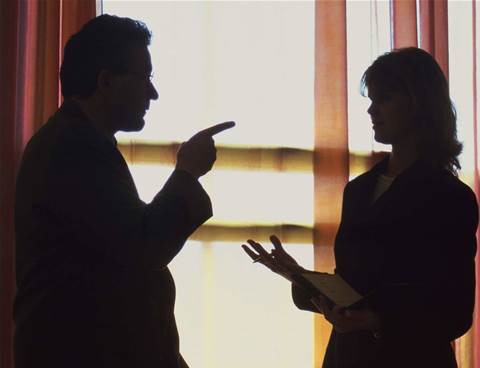Negotiations between Telstra and the trade union movement hang on a disagreement as to how the two parties might refer a dispute to the Rudd Government's industrial relations mediator, Fair Work Australia (FWA).
Both the CPSU (Community and Public Sector Union) and Telstra claim to have made progress since the two parties began discussions around a new enterprise agreement in July, following the introduction of the Rudd Government's Fair Work Act (2009) and a more consultative approach from Telstra CEO, David Thodey.
"Telstra and the unions have committed to bargaining in good faith under the new Fair Work laws towards the objective of a new enterprise agreement as soon as practicable," a spokesman for Telstra told iTnews.
"We want to negotiate an agreement that is fair and equitable for both Telstra and our employees. We are participating in the formal bargaining process and discussions have been positive."
Under the Rudd Government's industrial relations reforms, unions and employers are asked to engage in a 'conciliation' process prior to referring any matter to Government-appointed arbitrators.
In an update released today, CPSU commended Telstra on its commitment to the conciliation process.
"The good news is that during recent discussions, Telstra indicated they are willing to...attend initial Fair Work Australia conciliation meetings," the union said.
Employers are compelled to attend these meetings, as under the Fair Work Act, the courts can take such participation into account when making decisions around awarding costs.
But Telstra and the unions have met one sticking point on the road to negotiating a new agreement for staff.
Under the Fair Work Act, should conciliation talks break down, FWA can be called in to impose on settlement on both parties.
"Telstra and the unions have yet to find agreement around the crucial issue of the progression of a dispute from 'conciliation' to 'arbitration'," the CPSU said.
The union claims Telstra would prefer FWA be called in only when both parties "consent to arbitration by FWA."
The unions claim only one party needs to call on the Government-appointed arbitrator.
"In our view, the possibility of an arbitrated outcome being imposed keeps all parties focused on reaching an acceptable solution at an early stage," the union said.
Louise Persse, national president at the CPSU told iTnews Telstra is sticking to a "long held" position on arbitration, despite its improving relationship with the union.
"It is a pretty important issue for our members," she said.
She said the union "wouldn't be looking to take frivolous matters forward" to FWA. "But it is useful protection for our members," she said.
In a speech on November 14, 2008, Deputy Prime Minister Julia Gillard said that while conciliation should always be the first option, the Fair Work Act allowed for FWA to "exercise a full suite of alternative dispute resolution powers".
Gillard said the act requires that "dispute settlement procedures in agreements must involve either FWA or another person or body independent of the parties" but warned unions that "the threshold to trigger arbitration will be high."
"Importantly, one party will be able to request Fair Work Australia to become involved in this way," Gillard said.





_(21).jpg&h=142&w=230&c=1&s=1)

.jpg&h=142&w=230&c=1&s=1)




.jpg&w=100&c=1&s=0)
_(8).jpg&w=100&c=1&s=0)











